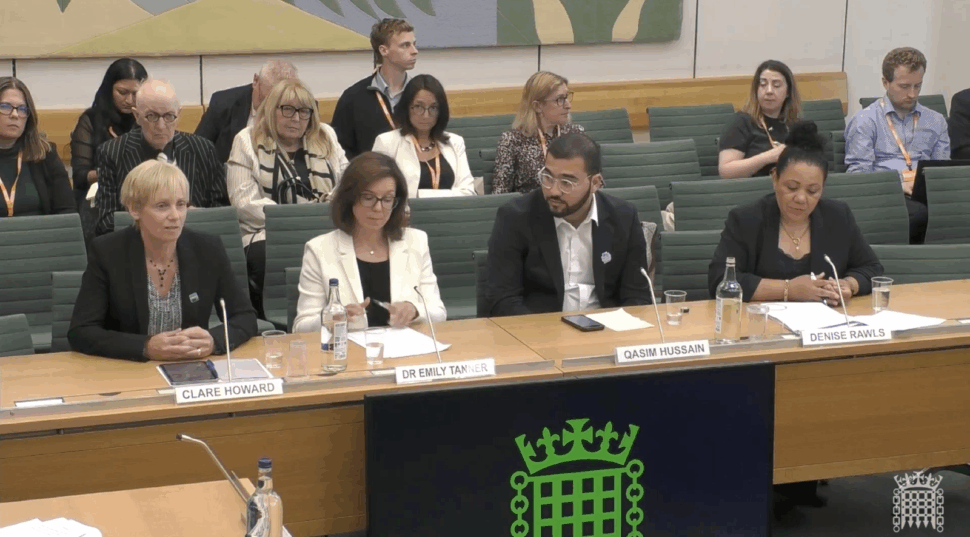An influential committee of MPs has joined calls for a statutory pay review body for colleges amid an ongoing teacher recruitment and retention crisis in the sector.
Concluding their future of FE and skills inquiry today, the education select committee has issued its wide-ranging report of over 40 recommendations, including devolution of 16-19 education to strategic authorities, reinstatement of funding for some level 7 apprenticeships and modular T Levels.
MPs warned the government not to lose sight of the “diverse motivations of adult learners” including “social inclusion and lifelong learning” as policy responsibility for adult education transfers from the Department for Education (DfE) to the Department for Work and Pensions (DWP).
The committee’s 124-page report also casts doubt on the independence of Skills England, which was transferred from the Department for Education (DfE) to the Department for Work and Pensions (DWP) last week and threw its weight behind calls for a targeted 16-19 student premium, mirroring the extra pupil premium that goes to disadvantaged pupils in schools.
Education committee chair Helen Hayes MP said: “Successive governments have rightly talked up the FE and skills sector as an engine for economic growth across the whole country, but it’s an engine that’s been left to run on fumes.

“Fifteen years of real terms funding cuts and stagnant pay have left colleges struggling to recruit and retain teachers who earn far less than their peers in schools. Far from receiving the parity of esteem it’s been promised in the past, FE continues to be treated like the Cinderella of the education system.”
Phil Smith, chair of Skills England, said: “We will continue to be an active voice across government in our new home as part of the Department for Work and Pensions. Bringing together skills development and employment support under one roof makes this an exciting time for the world of skills training.”
Pay review body
One headline recommendation was for the DfE to set up a statutory pay review body for colleges, comparable to the School Teachers’ Review Body. Without one, college teacher pay decisions are “fragmented” and “inadequate”, the report said.
An FE Week investigation last year found that there was some appetite for a pay review body among unions, but college leaders were “nervous” about losing the freedom to set their own teachers’ salaries. The DfE did not indicate that they had any plans for a pay review body for colleges at the time, and did not respond to requests for comment at the time of going to press.
This comes as the University and College Union (UCU) put nearly 80 colleges on notice of trade disputes following the Association of Colleges’ 4 per cent pay recommendation last week. One of UCU’s key demands is for binding, national pay agreements for FE college teachers that are commonplace in schools and sixth form colleges.
The report stated: “There is a growing pay disparity between school and college teachers in England, with college staff earning significantly less—on average college teachers earn 15 per cent less. This issue has contributed to the recruitment and retention crisis.”
Bill Watkin, chief executive of the Sixth Form Colleges Association said: “Sixth form colleges have managed to close the gap in pay between college teachers and their school counterparts through our current collective bargaining arrangements.
“The best way to ensure it remains closed, and all staff in sixth form colleges get a fair deal, is to ensure that 16 to 19 funding keeps pace with school funding.”
Devolve “appropriate” 16-19 funding
The vast majority of adult education funding is now controlled by mayors, but ministers have resisted calls to devolve 16 to 19 education funding.
Skills minister Jacqui Smith admitted to “tensions” between DfE and the mayors over this issue, arguing that 16 to 19 education was “a national system” and said she “could not envisage that we would devolve all of that 16 to 19 funding to mayors.”
The committee called for the government to amend its English devolution and community empowerment bill to “make provisions” allowing “appropriate” 16 to 19 education funding to be devolved to strategic authorities. The report did not define “appropriate”.
David Hughes, chief executive of the Association of Colleges, said devolving 16 to 19 education would risk “upsetting” the system.
“We support the idea of locally elected mayors overseeing the 16-19 capacity to meet all leaner needs, perhaps with capital to support it, backed up by a national funding formula which followed every learner,” he said.
“Going further than that is not necessary,” he added.
However, on adult education, the committee found a “disparate and uneven adult skills landscape” and recommended a new “skills co-ordination board” to check that mayors were delivering on national priorities.
SEND neglect
Specialist colleges should receive a one-off capital grant to repair their estates and receive ringfenced funding in the future. These recommendations follow evidence from Natspec, the specialist colleges body, which also convinced the committee to recommend that the post-16 SEND policy brief be switched from the schools minister to the skills minister.
The committee said: “This split in ministerial responsibility has led to the neglect of FE SEND policy, as well as inefficiencies, limited accountability and policy fragmentation.”
Hayes’ committee published its ‘solving the SEND crisis’ report last week, which described post-16 students as “overlooked” and “rarely seen” as a funding priority.
In addition to dedicated capital funds, today’s report repeats last week’s report’s call for an extension of local authorities’ statutory duty to provide home-to-college transport to 16 to 25 year olds.
Clare Howard, chief executive of Natspec, said: “Too often SEND in general, and specialist colleges in particular, have been an afterthought in FE policy or completely overlooked, but in this report the committee has truly listened to concerns and embedded SEND provision within their thinking on FE and skills reform.
“It is now vital that the Department for Education takes these recommendations on board to deliver the fundamental change that is needed to build a genuinely inclusive and effective skills system for all.”

Small T, please
Committee MPs were also troubled by the “concerningly” high dropout rate of T Level students and “persistent” problems of employer involvement.
T Levels are the government’s flagship two-year technical and vocational qualification for 16-18-year-olds, which are equivalent to three A Levels.
“If T Levels are to become the ‘gold-standard technical qualification’, the government must urgently address a number of challenges,” the report said.
DfE should consider establishing smaller “modular” T Levels, equivalent to one A Level, which would allow students to mix and match academic and technical subjects.
The report also called for a “national awareness campaign” to promote T Levels, despite an FE Week investigation revealing more than £12 million had already been spent on PR and marketing campaigns since the qualifications launched.
A further FE Week investigation last week found underspending on an ambassador scheme meant to boost awareness of the qualification.
The committee also said applied general qualifications should be retained for the long term, and schools should be properly measured on their compliance with the Baker clause.
Resit options
Today’s report comes ahead of a long-awaited curriculum and assessment review, led by Becky Francis, which ministers are relying on to determine the future of the controversial GCSE English and maths resit policy.
The report laid out long-standing challenges with the government’s condition of funding requirement that students aged 16 to 18 who have not attained a grade 4 in GCSE maths and/or English must resit the exams.
The policy is “not serving its purpose”, the committee said, after hearing that “over 80 per cent of those who did not achieve grade 4 at 16 still are not achieving that grade by 19.”
The committee recommended introducing three options for those students.
Route A would direct students who have a “realistic” prospect of passing, based on their GCSE results and prior attainment, should be supported to resit their exams.
Route B would involve embedding maths and English content in FE courses that have been “rigorously quality assured”. This would allow those students to be considered exempt from resits.
Route C would direct students who are considered unlikely to pass despite multiple resits should be offered a chance to instead take on a functional skills qualification in maths or English.
Education committee recommendations in full
To note: Since the report was written, responsibility for skills policy, apprenticeships, adult education, and the agency Skills England has moved from the Department for Education to the Department for Work and Pensions. None of the proposals below were costed.
Skills England
- Hold the agency to account through annual accountability sessions (although Skills England ownership has now passed to the Department for Work and Pensions)
- By June 2026, the government should review whether the CEO’s have been graded at the right level of seniority in the civil service to have the right level of cross-government clout
- Data and information on skills gaps and training outcomes should be available through a centralised platform, available by June 2026
- An independent review of Skills England should report by June 2027, and, if required, new laws should give the agency full independence
Devolution
- “Appropriate” 16-19 education and training programmes should be devolved to strategic authorities through the government’s current English devolution and community employment bill
- A “more comprehensive skills devolution” programme should be trialled
- Local skills improvement plans (LSIPs) should be audited and reviewed to see if they can more easily link to other skills initiatives, and complex networks of relationships between providers, employers, local government and Skills England can be rationalised
- The government’s youth guarantee should be extended from 18-21-year-olds to 16-24-year-olds
- A new skills co-ordination board should be established by Skills England to monitor devolved authorities to check they are delivering national priorities and “consistency of effectiveness”
Post-16 qualifications and pathways
- DfE should publish an annual report detailing levels of Baker clause compliance in schools and consider whether the threshold for intervening on schools that don’t comply should be lowered
- Regional “portals” should link to UCAS to create information and application options for vocational courses, including apprenticeships. This should mean standardising apprenticeship applications and give learners more information about their options
- There should be a national awareness campaign to promote T Levels
- DfE should consider “overhauling” the T Level transition programme
- Smaller, modular T Levels should be introduced so students have the option of blending academic and technical education
- Applied general qualifications should be retained for the long term
- Communications and planning for future qualifications reform should be improved “to avoid uncertainty and disruption” for providers and students
- The level 3 qualifications reform programme should be evaluated
English and maths
- DfE should “take action” to improve English and maths attainment in schools
- Three options should be available to students and apprentices who don’t achieve a grade 4 pass in GCSE English and maths at age 16:
- Students with “a realistic prospect” of achieving a grade 4 should be supported to do so
- Certain “vocational” courses should be exempt from the resit rule by building in relevant English and maths content
- Those “very unlikely” to secure the grade 4 despite multiple resits should be taught functional skills qualifications
Apprenticeships
- SMEs should have access to a dedicated support service with “streamlined” application and reporting systems by April 2026
- By June 2027, the levy should be simplified for SMEs
- Foundation apprenticeships should be expanded to hospitality, retail and care (health and social care is already an option)
- Levy funding for level 7 apprenticeships should be reinstated for the eight industrial strategy growth sectors
Student support services
- DfE’s target of 100 per cent coverage of mental health support teams by 2029 must include all post-16 students
- Children and adolescent mental health services “must improve”
- DfE should fund a 16-19 student premium for those in receipt of the pupil premium
- “Local authority-level data” should be used to identify areas where attainment is below national averages
SEND
- Post-16 SEND policy should be moved from the schools minister to the skills minister
- DfE should “consider” extending the statutory duties on local authorities to provide home-to-college transport to 16-25 year-olds
- Under-22s should receive free bus travel and all 16-25 SEND students should have access to a local authority travel training programme
Care-experienced students
- Specialised support should be available for care-experienced students transitioning from secondary school to further education or training settings
- Data covering care-experienced students’ pathways and attainment through education and employment should be monitored
Teachers
- DfE should create a statutory pay review body for colleges with a commitment to closing the pay gap with schools by 2029
- Recruitment and retention challenges should be addressed by incentives covering mainstream and specialist colleges
- There should be a trades-to-teaching strategy
Funding
- Per-student funding for all post-16 education should be increased based on “a detailed assessment of need
- Colleges should be exempt from paying VAT
- Skills England should work out the resources needed to meet demand for adult education and accordingly “advocate within government for increased funding”
- Adult education must remain “a vital tool for social inclusion, personal fulfilment and lifelong learning” at the DWP
- Capital funding should also be increased, with options for temporary expansions to cover the demographic bulge
- College capital programmes should be extended to include specialist colleges and sixth form colleges
- Specialist colleges should receive a one-off grant for urgent repairs, and should have access to a ring-fenced high needs fund
















Your thoughts